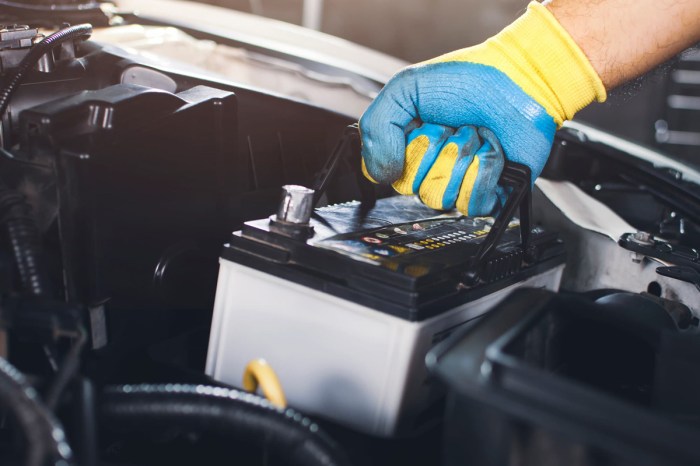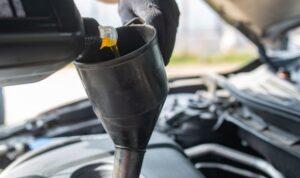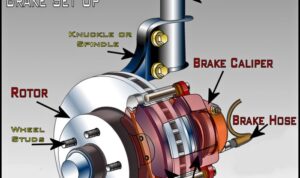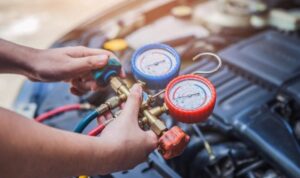Car battery maintenance tips are essential for ensuring your vehicle’s battery stays in top condition. This guide will provide you with valuable insights on how to extend the lifespan of your car battery and avoid common issues that may arise.
From the importance of regular maintenance to tips for preserving battery life, this article covers everything you need to know to keep your car battery in optimal shape.
Importance of Car Battery Maintenance

Regular maintenance of car batteries is crucial to ensure the smooth operation of your vehicle and prevent unexpected breakdowns. Neglecting battery maintenance can lead to various consequences that can leave you stranded on the road or with a non-functioning vehicle. By identifying signs that indicate the need for maintenance and taking proactive measures, you can extend the lifespan of your car battery and avoid costly replacements.
Signs that Indicate the Need for Maintenance
- Diminished cranking power when starting the vehicle.
- Visible corrosion on the battery terminals.
- Frequent need for jump-starts.
- Dashboard warning lights related to the battery.
Benefits of Proper Maintenance
- Regular maintenance can help prevent unexpected breakdowns.
- Extends the lifespan of the car battery, saving you money on replacements.
- Improves overall vehicle performance and fuel efficiency.
- Ensures reliable operation of electrical components in the vehicle.
Types of Car Batteries

When it comes to car batteries, there are several types available in the market, each with its own set of features and suitability for different vehicles and driving conditions. The most common types of car batteries include lead-acid, AGM (Absorbent Glass Mat), and lithium-ion batteries.
Lead-Acid Batteries, Car battery maintenance tips
Lead-acid batteries are the oldest type of car batteries and are known for their affordability. They are durable and can withstand harsh weather conditions, making them ideal for traditional vehicles. However, they are heavier and require regular maintenance to ensure optimal performance.
AGM (Absorbent Glass Mat) Batteries
AGM batteries are a more advanced type of battery that offers better performance and durability compared to lead-acid batteries. They are maintenance-free, have a longer lifespan, and are suitable for vehicles with high electrical demands, such as modern cars with advanced technology features.
Lithium-Ion Batteries
Lithium-ion batteries are the most advanced type of car batteries, known for their lightweight design and high energy density. They are more expensive than lead-acid and AGM batteries but offer superior performance, faster charging times, and longer lifespan. They are ideal for high-performance vehicles and hybrid or electric cars.
Each type of car battery has its own set of advantages and disadvantages, so it is important to consider the specific needs of your vehicle and driving habits when choosing the right battery type. Lead-acid batteries are cost-effective but require regular maintenance, AGM batteries offer better performance and durability, while lithium-ion batteries provide superior performance and longer lifespan but come at a higher cost. Choose the type of battery that best suits your vehicle and driving conditions to ensure reliable and efficient power supply.
Tips for Extending Car Battery Life

Maintaining your car battery properly is essential for prolonging its lifespan and avoiding unexpected breakdowns. By following some simple tips and best practices, you can ensure that your battery stays in top condition for longer periods of time.
Regular Inspection and Cleaning
Regularly inspecting and cleaning your car battery is crucial for its optimal performance. Make sure to check for any signs of corrosion on the terminals and cables. If you notice any build-up, clean it with a mixture of baking soda and water to prevent poor connections and voltage issues.
Proper Charging Routine
It’s important to follow a proper charging routine to maintain the health of your car battery. Avoid deep discharges by charging your battery before it reaches a low voltage level. Additionally, consider investing in a smart charger that can automatically adjust the charging rate based on the battery’s condition.
Monitor Driving Habits
Your driving habits can also impact the lifespan of your car battery. Avoid frequent short trips that don’t allow the battery to fully recharge. Opt for longer drives to ensure that the battery gets enough time to replenish its charge.
Protect from Extreme Temperatures
Extreme temperatures can take a toll on your car battery. During hot weather, ensure proper ventilation under the hood to prevent overheating. In cold weather, consider using a battery insulation kit to maintain optimal operating temperatures.
Professional Maintenance
Lastly, consider getting your car battery professionally inspected and maintained at regular intervals. A qualified mechanic can perform load tests and voltage checks to identify any potential issues before they escalate.
By following these tips and incorporating them into your routine maintenance schedule, you can extend the life of your car battery and avoid the inconvenience of a dead battery when you least expect it.
Common Car Battery Issues and Solutions

Car batteries can encounter various problems that can affect their performance and lifespan. It’s essential to be aware of these issues and know how to troubleshoot them effectively.
Corrosion
Corrosion on the battery terminals can prevent proper electrical contact, leading to starting issues. To address this problem, you can clean the terminals with a mixture of baking soda and water and use a wire brush to scrub off the corrosion. Applying a corrosion-resistant spray can also help prevent future buildup.
Sulfation
Sulfation occurs when sulfate crystals accumulate on the battery plates, reducing its ability to hold a charge. To prevent sulfation, it’s essential to regularly charge the battery and avoid deep discharges. If sulfation has already occurred, using a desulfator or a battery charger with a desulfation mode can help break down the crystals and restore the battery’s performance.
Low Electrolyte Levels
Low electrolyte levels can lead to poor battery performance and reduced lifespan. It’s crucial to check the electrolyte levels regularly and top them up with distilled water if necessary. However, if the battery continues to have low electrolyte levels, it may be a sign of a more severe internal issue, and it might be time to replace the battery.
When to Replace a Car Battery
While some battery issues can be fixed with proper maintenance and troubleshooting, there comes a point when it’s more cost-effective and safer to replace the battery rather than trying to fix it. If your battery is old, has visible physical damage, or consistently fails to hold a charge even after charging, it’s time to invest in a new battery.
Professional Advice on Handling Battery-Related Problems
If you’re unsure about how to troubleshoot or fix a car battery issue, it’s always best to seek professional help. Automotive technicians have the expertise and tools to diagnose and repair battery problems effectively. Don’t hesitate to consult a professional if you’re facing persistent battery issues that you can’t resolve on your own.
Outcome Summary: Car Battery Maintenance Tips

In conclusion, by following the car battery maintenance tips Artikeld in this guide, you can significantly prolong the lifespan of your battery and prevent potential issues down the road. Stay proactive in taking care of your car battery to ensure smooth and reliable performance for your vehicle.
Introducing the latest innovation in the automotive world, the Honda e:Ny1 electric SUV. This groundbreaking vehicle combines sleek design with eco-friendly technology, making it a standout choice for modern drivers. With its impressive range and advanced features, the Honda e:Ny1 is set to revolutionize the way we think about electric vehicles.
Introducing the latest innovation from Honda, the Honda e:Ny1 electric SUV. This eco-friendly vehicle combines style, performance, and sustainability in one sleek package. With its cutting-edge technology and zero-emission design, the Honda e:Ny1 is setting a new standard for electric vehicles in the market.
- Steps to clean car headlights: A Complete Guide for Brighter and Safer Driving - January 7, 2025
- Common car engine problems: Top issues, signs, and solutions - January 6, 2025
- DIY car oil change guide: Everything you need to know to save time and money - January 5, 2025







